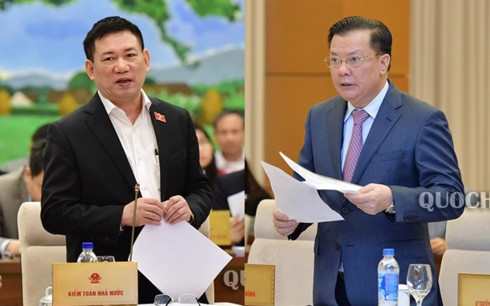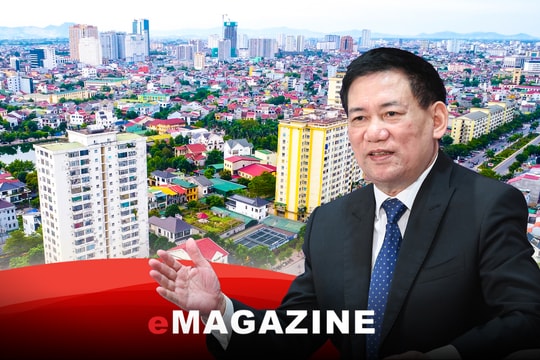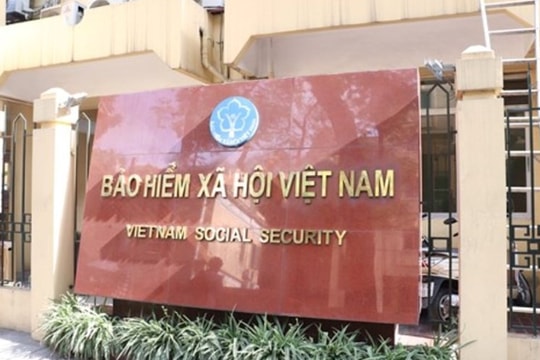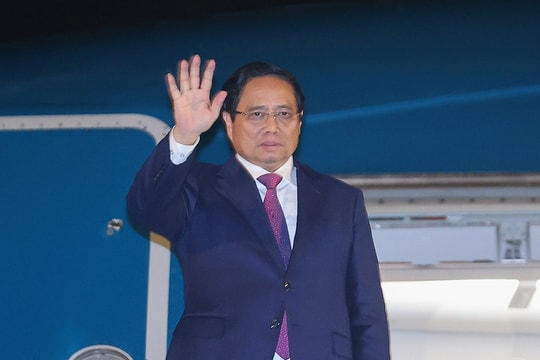Auditor General Ho Duc Phoc was surprised by the information given by the Minister of Finance.
The State Auditor General expressed surprise at the press report quoting Minister Dinh Tien Dung saying that the tax authority was sued and the responsibility of the auditor.
Minister of Finance Dinh Tien Dung once stated before the National Assembly that during the implementation process, there were conclusions from inspections and audits, the tax authorities complied very seriously, and notified taxpayers to pay more, but taxpayers found it unsatisfactory so they sued.
At the morning meeting on February 21, the National Assembly Standing Committee gave opinions on aRegarding the major issues regarding the draft Law on Tax Administration (amended), Mr. Dinh Tien Dung cited data showing that from 2013 to 2018, 14 lawsuits arose, of which 10 were tried, the tax authority lost all 10, 3 cases are being handled and 1 case is suspended.
Emphasizing the view that when an audit concludes, the auditor must be responsible to the end, the Minister of Finance stated that there was a case where the two audit conclusions gave two different numbers with a very large discrepancy, and if the collection was based on the original number, the agency that was being overcharged would sue.
|
| Auditor General Ho Duc Phoc and Minister of Finance Dinh Tien Dung. |
Expressing surprise at this information, at the 32nd meeting of the National Assembly Standing Committee held this morning (March 11), when discussing the Law amending and supplementing a number of articles of the State Audit Law in 2015, Auditor General Ho Duc Phoc assigned officials to work with financial agencies to review files on lawsuits against tax agencies without touching the State Audit (SA) and the audit agency did not know.
According to Mr. Ho Duc Phoc, in 13 lawsuits, the court dismissed the lawsuit in 1 case, the auditor requested the tax authority to inspect and handle the case according to regulations, and the tax inspection results made the inspected unit dissatisfied, so they sued the tax inspector.
The remaining 11 cases were audited by the State Audit Office at the tax authority, not directly with the enterprise, only recommending that the tax authority inspect, clarify and handle them.
"That means the audit evidence does not come from the business, so saying that the audit conclusion is wrong and causes the business to sue is completely incorrect," said Mr. Ho Duc Phoc, mentioning two specific cases: the tax collection at Sabeco and Unilever.
At Unilever, the first conclusion of the State Audit was to propose collecting 882 billion VND based on the examination of records at the tax authority. After working with the company, Unilever could not provide evidence and authorized the international consulting company.
The State Audit invited the parties to work to evaluate the documents but the parties could not provide evidence. After a very long time, after the National Assembly's Finance and Personnel Committee requested to continue to do it again, the enterprise then provided additional documents. "The three parties confirmed that it was 575 billion VND, the enterprise accepted 316 billion VND and the rest could not provide evidence" - Mr. Phoc said.
At the last meeting at the State Audit Office with the participation of all parties, the evidence was very clear. After signing the document, the enterprise had to pay 316 billion VND, the remaining amount was unclear and the evidence continued to clarify this amount.
"Saying this is to show that the audit's conclusion must be convincing and transparent," Mr. Ho Duc Phoc affirmed.
Regarding Sabeco, according to the State Auditor General, since discovering the transfer pricing of this enterprise, the State Audit Office has proposed and coordinated with the Government Inspectorate to recommend payment of 4,700 billion VND and the enterprise has paid it in full to the budget. The remaining amount is the late payment penalty that the tax authority has not yet imposed and is "suspended".
When the State Audit Office came to audit (at that time the sale to Thailand had not been made yet), they discovered that the undivided amount of 2,700 billion VND was required to be divided, so the audit required that this amount be divided.
At the General Meeting of Shareholders before Sabeco was sold, no decision was made on redistributing this pre-tax profit. Later, the Ministry of Industry and Trade issued a written explanation, stating that this was a reserve fund in case the General Department of Taxation decides whether to impose a late payment penalty on Sabeco or not. If a late payment penalty is imposed, this fund will be used to pay.
“If Sabeco is sold later, it will be sold from the root, including the 2,700 billion VND. Now the issue of implementing the State Audit's conclusion recommendation and punishing Sabeco has arisen. In short, the State Audit concluded correctly and with sufficient evidence at the time of the audit, there was nothing wrong” - Mr. Ho Duc Phoc emphasized and said that this agency inspected at the tax authority, evaluated a number of records, whether the tax-paying unit performed its functions and powers correctly or not, whether there were any missed revenue sources or not, and from there recommended corrections, not to "touch" businesses or taxpayers.






.jpg)
.jpg)

